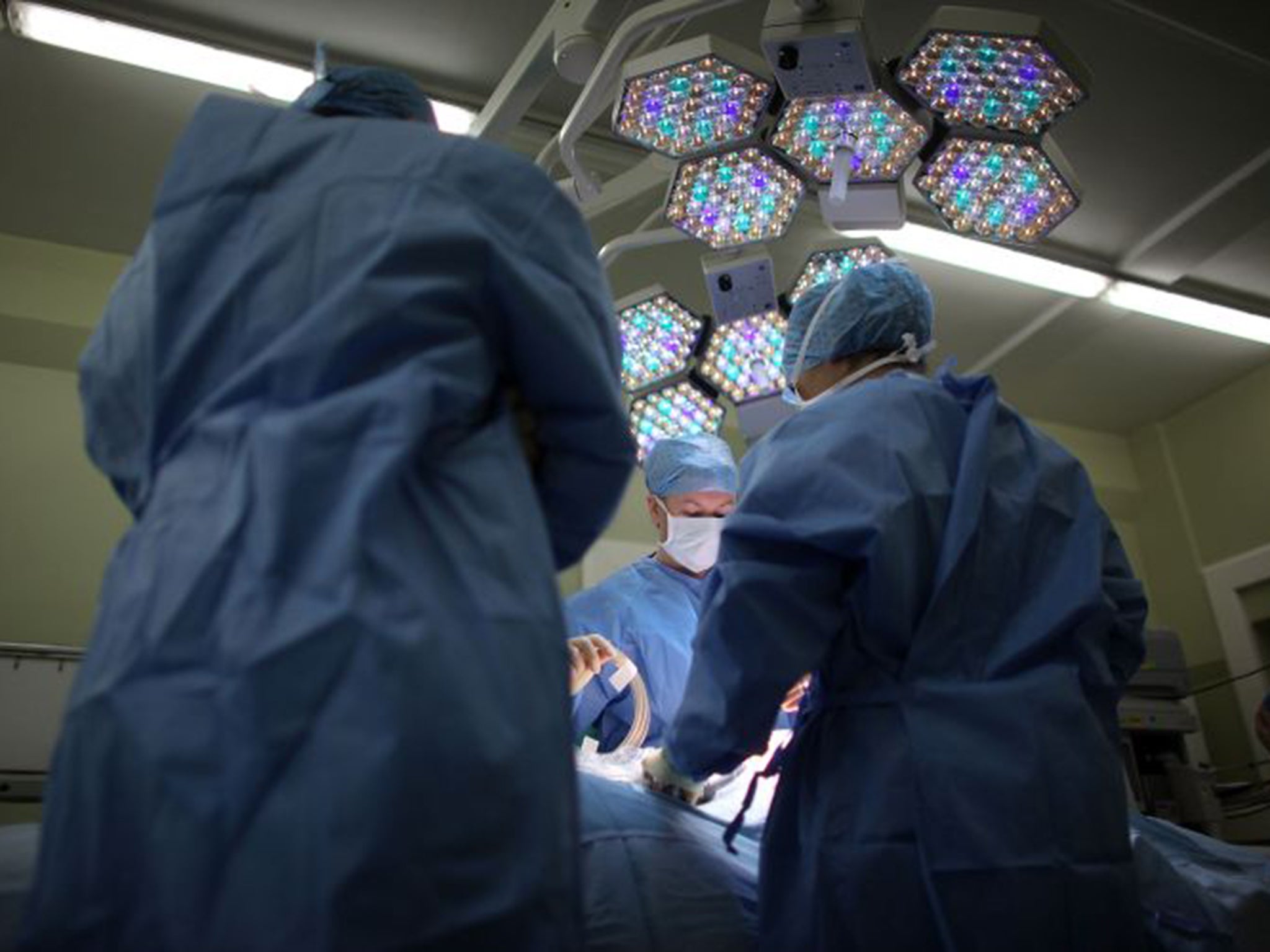NHS hit by stealth cuts of £2bn as tariffs received for medical procedures are reduced
Unison claims the tactic of lowering the amounts given to hospitals for different treatments is a false economy

Hospitals across England have suffered a “stealth cut” amounting to more than to £2bn since 2010, because of reductions in the amounts paid to fund standard medical procedures, according to new research.
Tariffs – the prices paid to hospitals to treat patients – have been reduced in the past five years, a trend medical experts say “is making a mockery” of government claims that the NHS has not suffered cuts. One in four “elective procedures”, such as treatments for kidney stones, asthma, blood poisoning and diabetes, have had their tariffs cut by more than 40 per cent since 2010, according to an analysis of 698 procedures by the False Economy think tank, commissioned by the TUC and Unison.
Unlike Scotland or Wales, where hospitals are paid through local contracts with health boards, English hospitals are subject to a system of national tariffs.
Looking in more detail at almost 130 different NHS procedures, researchers found that between 2009/10 and 2014/15, hospitals suffered a net income loss of £70m due to cuts to tariffs.
Some treatments for conditions such as leukaemia, asthma and sickle cell anaemia, have been cut by 85 per cent – amounting to thousands of pounds being cut off the amount given to treat an individual patient. The amount given for treatments of health problems such as glaucoma and tuberculosis has been reduced by more than 70 per cent. Hospitals have also had the tariffs for some treatments for diabetes reduced by almost two-thirds, while the amount they are given to treat kidney stones and septicaemia has been cut by more than half.
The tariff for hip operations has been cut by 20 per cent. Diagnosis of neonatal problems has been slashed by 68 per cent, with hospitals given £671 for each patient compared with £2,079 in 2009/10. The pattern of cuts, when applied across all 4,500 tariffs which make up most of the funding given to hospitals, equates to a cut of more than £2bn over the past five years, according to researchers.
The dramatic reductions are part of a wider problem of cost cutting which is worsening the growing financial crisis in the NHS, claim campaigners. Dr Mark Porter, chair of the British Medical Association (BMA), said: “Cutting hospital tariffs causes real hardship for NHS services which are already struggling under rising patient demand, especially from an ageing population. This will push NHS organisations further into deficit, making a mockery of claims to have protected the NHS from cuts.”
Frances O’Grady, TUC general secretary, said: “These stealth cuts may have been largely hidden from the public eye, but the effects are grave. The NHS is in a rapidly deteriorating financial position, with hospital finances in steep decline.”
The tactic of reducing the amounts given to hospitals for different treatments is a false economy, said Dave Prentis, Unison general secretary. “Slashing tariffs might seem an easy way for the NHS to save money but these operations and procedures are no cheaper to do now than they were five years ago. Each time the money given to a hospital for a particular operation is cut, that trust goes deeper into the red,” he said.
The increasing strain on NHS resources
Show all 4Chris Ham, chief executive of the King’s Fund, warned: “It is clear that the policy of implementing year-on-year reductions in the tariff has reached the end of the line.”
A Conservative spokesman said: “Getting efficiency from the tariff is an important part of driving better value for taxpayers from the NHS, which is why it has been the policy of successive governments. Hospitals have seen real-terms increases in their budgets this Parliament, and unlike Ed Miliband, we’re committing to the £8bn the NHS says it needs to transform community care.”
In a statement, a NHS England spokesperson said: “Rather than being cut, hospital funding in England has gone up, rising over the past three years from £49bn to over £56bn, a real terms increase of 9 per cent.”
In January, NHS Providers, representing organisations ranging from hospitals to mental health and ambulance services, warned: “It is now widely accepted that 2015/16 will be the most difficult financial year for the NHS in its recent history.”
Sixty out of 83 acute foundation trusts are in the red, with a net deficit of £438m, according to figures released by the health service regulator Monitor in February.
NHS Providers is among those that opposed proposals earlier this year to cut tariffs by a further 3.8 per cent. The scale of opposition to the proposed changes – meant to come into effect this month – has forced the Government to delay its plans.
Subscribe to Independent Premium to bookmark this article
Want to bookmark your favourite articles and stories to read or reference later? Start your Independent Premium subscription today.

Join our commenting forum
Join thought-provoking conversations, follow other Independent readers and see their replies